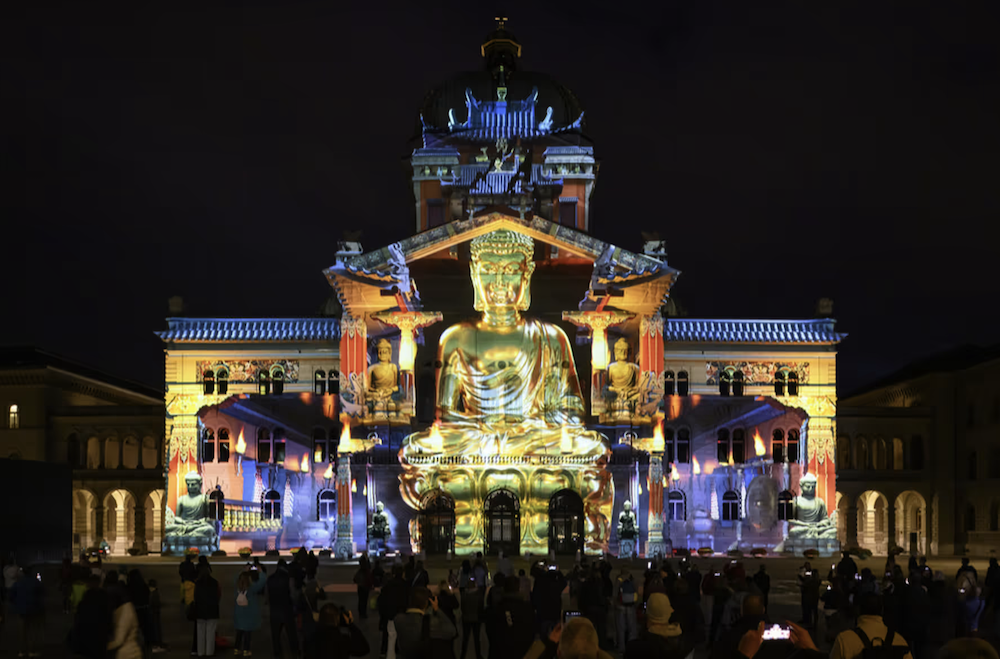Tenzin Nyidon
DHARAMSHALA, Nov. 7: The 15th edition of the “Rendez-vous Bundesplatz” light show, titled “Voyage,” currently lighting up the facade of Switzerland’s Federal Palace in Bern, has come under scrutiny after organizers dropped a planned projection of Tibet following intervention from the Swiss Parliamentary Services. The segment depicting Tibet’s scenic beauty was reportedly removed on the grounds that it was “too political,” sparking criticism from rights advocates and members of the Swiss Parliament.
The “Voyage” light show, which runs every evening until November 22, takes visitors on a vibrant 30-minute visual journey across the world, showcasing famous landmarks such as the Eiffel Tower, the Pyramids of Giza, and the Taj Mahal. However, what was initially intended to include a stop in Tibet was replaced by an image of a Thai Buddha after the parliamentary authorities intervened, citing the sensitivity surrounding the issue.
According to the Administrative Delegation of the Parliamentary Services, projections displayed on the Federal Palace, a building of high national and symbolic importance, must be made “without political intentions.” A spokesperson told Swiss broadcaster SRF that “Tibet is associated with political questions, particularly since this involves a projection onto the symbolically significant façade of the Parliament building.”
The organizer of the show, Brigitte Roux, accepted the decision “without objection,” according to CH Media. The administrative delegation maintained that the prohibition was not directed at the artistic team but stemmed from the need to ensure neutrality in state-linked spaces.
Nonetheless, the move has drawn strong reactions from Swiss lawmakers and Tibet supporters. Fabian Molina, National Councillor (SP/ZH) and co-president of the Parliamentary Group for Tibet, condemned the decision, calling it “a capitulation of Parliament to China” and a “restriction of artistic freedom.”
Molina’s remarks echo growing concerns that Switzerland’s institutions may be increasingly cautious about issues that could offend Beijing. China expert Ralph Weber, a professor at the University of Basel, described the decision as “preemptive obedience” to China, adding that the original Tibet sequence was only intended to display its natural beauty, not political commentary.
While the show continues to enchant audiences with its dazzling global imagery, the exclusion of Tibet has cast a shadow over this year’s production, raising questions about the limits of artistic freedom and the influence of political sensitivities on cultural expression in democratic spaces.










